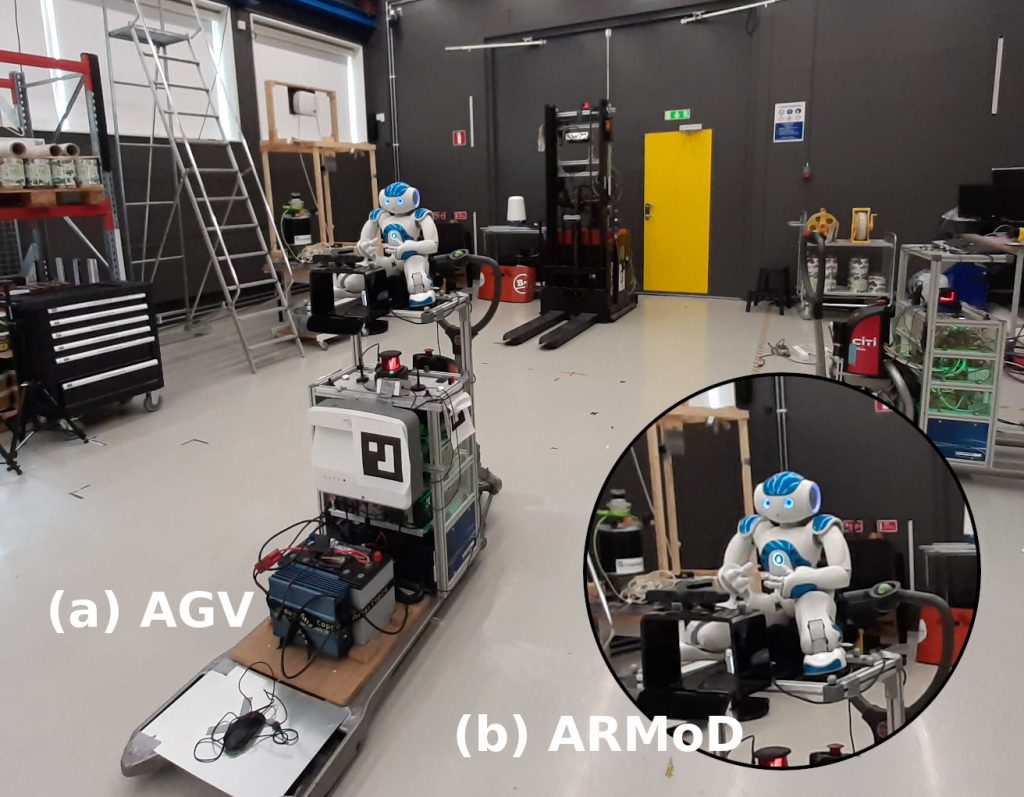Tim Schreiter, Lucas Morillo-Mendez, Ravi Teja Chadalavada, Andrey Rudenko, Erik Alexander Billing and Achim J. Lilienthal
RO-MAN Workshop on “Trust, Acceptance and Social Cues in Human-Robot Interaction” (SCRITA)

Abstract
Robots are increasingly deployed in spaces shared with humans, including home settings and industrial environments. In these environments, the interaction between humans and robots (HRI) is crucial for safety, legibility, and efficiency. A key factor in HRI is trust, which modulates the acceptance of the system. Anthropomorphism has been shown to modulate trust development in a robot, but robots in industrial environments are not usually anthropomorphic. We designed a simple interaction in an industrial environment in which an anthropomorphic mock driver (ARMoD) robot simulates to drive an autonomous guided vehicle (AGV). The task consisted of a human crossing paths with the AGV, with or without the ARMoD mounted on the top, in a narrow corridor. The human and the system needed to negotiate trajectories when crossing paths, meaning that the human had to attend to the trajectory of the robot to avoid a collision with it. There was a significant increment in the reported trust scores in the condition where the ARMoD was present, showing that the presence of an anthropomorphic robot is enough to modulate the trust, even in limited interactions as the one we present here.
@InProceedings{schreiter-2022-armod,
title={The Effect of Anthropomorphism on Trust in an Industrial Human-Robot Interaction},
author={Tim Schreiter and Lucas Morillo-Mendez and Ravi Teja Chadalavada and Andrey Rudenko and Erik Alexander Billing and Achim J. Lilienthal},
booktitle={RO-MAN Workshop on ``Trust, Acceptance and Social Cues in Human-Robot Interaction'' (SCRITA)},
date={2022-08-29},
}

